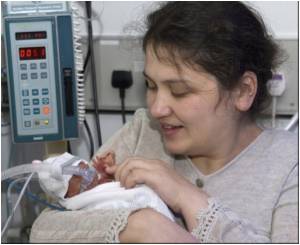Depression is common in disadvantaged mothers, well beyond the postpartum period. In addition, if depressed moms are treated briefly.

"Depression in underserved women of childbearing age is extremely common, and nearly one in five mothers of children older than 1 year of age reports moderate to severe depressive symptoms," said Carol Weitzman, MD, who presented the study findings at the Pediatric Academic Societies (PAS) annual meeting in Vancouver, British Columbia, Canada.
Maternal depression has been associated with health and development problems in children. Therefore, to optimize children's health, mothers who are depressed should be identified and treated. As parents routinely bring their children for check-ups, this may present an opportunity to identify depressed mothers as so many women do not seek treatment for their symptoms.
To reach the conclusion, Dr. Weitzman and her colleagues at Yale University School of Medicine asked 931 mothers to complete a 16-item measure of depression severity before a well-child visit in a clinic that cares for disadvantaged children. Women who screened positive were interviewed to confirm that they had depressive symptoms.
Seventy-one mothers with depression were randomized to receive six sessions of on-site cognitive behavior therapy (CBT) or case management, which consisted of speaking with a social worker and getting assistance with referrals. Their children's social-emotional functioning was measured before and after treatment using the Brief Infant Toddler Social Emotional Assessment (for children younger than 4 years) or the Pediatric Symptom Checklist.
Results showed that 45 percent of mothers screened positive for depressive symptoms (26 percent had mild symptoms, 13 had moderate symptoms and 6 percent had severe symptoms).
Advertisement
All of the women who were treated with case management or CBT showed improvement in their depression symptoms. The scores improved significantly in the group who received CBT, whereas the case management group did not show a dramatic change.
Advertisement
SRM












